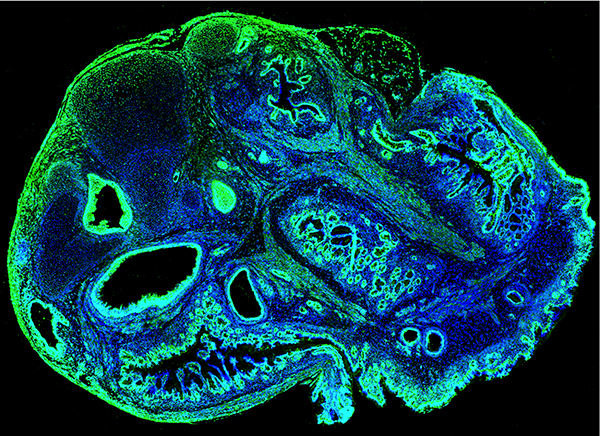
The Organ-in-a-Dish Challenge
A gift from The Eli and Edythe Broad Foundation has established the Eli and Edythe Broad Innovation Awards in Stem Cell Biology and Regenerative Medicine at USC. This year, two awards totaling $120,000 each will be given to successful teams in this year’s competition: the Organ-in-a-Dish Challenge.
In the early 1950s, Clifford Grobstein pioneered in vitro organ explant culture to study kidney function. While this system enables development of many organs, the extent of development is limited, organ morphologies are abnormal, and imaging and functional analysis present additional challenges.
Recently, self-assembling, stem cell-initiated organoids, or miniaturized organs, have started to provide new insights into development and disease. Furthermore, organ-on-a-chip approaches, using synthetic assemblies of a variety of cell types, have been shown to replicate organ-specific activities.
We are seeking innovative proposals to develop broadly enabling strategies to advance our understanding of mammalian organ development, repair and function. This may include, but is not restricted to improved methodologies for growth and patterning of in vitro organ models, visualization of complex 3-dimensional assembling systems and functional analysis of miniaturized organ models.
Awards may cover personnel salaries (excluding PI), supplies, travel (up to $2,000) and minor equipment (up to $15,000). All USC faculty with PI privileges are eligible to apply, and multi-investigator proposals with complementary expertise are encouraged. A goal of the award is to cement new collaborative interactions and seed new funding opportunities in stem cell research and regenerative medicine at USC. Applicants should address these objectives in a short paragraph in their proposal.
Pre-proposals comprising a two-page summary with up to five pertinent references and NIH biosketches for all applicant PIs are requested by August 31. Up to four teams will be invited to submit a full five-page proposal for an October 15 deadline. Award decisions will be made by November 1, with the initiation of funding expected on January 1, 2016. Funding is for one year only.
Applications should be submitted to Dr. Qing Liu-Michael (qliumich@med.usc.edu) by the application deadline of August 31, 2015.
